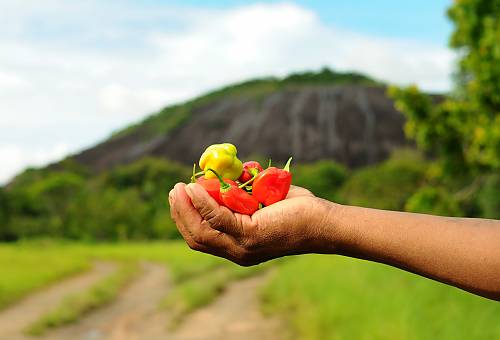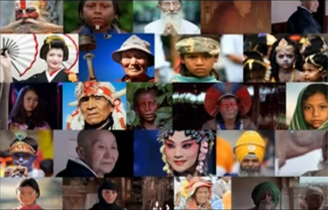The Living Heritage Entity celebrates the International Day of the World's Indigenous Peoples
 |
| The oral tradition of the Mapoyo and its symbolic points of reference within the ancestral territory encompass a body of narratives that constitute the collective memory of the Mapoyo people. © Centro de la Diversidad, 2013 |
Indigenous peoples hold a rich diversity of living heritage, including practices, representations, expressions, knowledge and skills. However, this diversity and its transmission are now at risk. The COVID-19 pandemic has indeed exposed and exacerbated many existing inequalities, disproportionately affecting populations all over the world that were already suffering from poverty, illness, discrimination, institutional instability or financial insecurity. From the perspective of indigenous peoples, the contrast is even starker.
Several responses to the survey conducted by the Living Heritage Entity testified to the COVID-19 pandemic’s impacts on indigenous peoples. Indigenous peoples, and particularly indigenous elders, are vulnerable to the risks from the pandemic, with significant cultural implications for the communities concerned. Indigenous elders play a crucial role in transmitting their culture, knowledge, values and languages to future generations. On the other hand, indigenous peoples were also able to solicit their living heritage as a tool for resilience and even resistance against the pandemic. This highlights the real need to bring indigenous peoples to the forefront of the new social contract in a post-pandemic world.
A particularly telling example relates to the oral traditions of the Amazigh in the Atlas Mountains of Morocco, which were adapted to help raise awareness about COVID-19. The community shared poetic verses and poems to express their feelings about the pandemic, as well as encourage people to follow public health advice. This example also underscores the importance of local and indigenous languages in ensuring effective communication about COVID-19.
In Colombia, Misak elders are teaching traditional agricultural techniques to younger generations, strengthening traditional recipes, while the Piaroa have been working on research to recover traditional seeds in experimental orchards throughout the pandemic. The Yaruro people have been working to research how to grow Moriche Palm trees, which provide a source of food as well as wood to build houses and crafts to sell. They also used the time to research the traditional stories related to the Moriche palms and related myths.
Address: 81, Laiguangying West Road, Chaoyang District, Beijing, China
Zip Code: 100021
Tel: 86-10-64966526
Fax: 86-10-64969281
E-mail: administration@crihap.cn
NEWSLETTER
Leave us your e-mail address, we'll let you know about current events.


